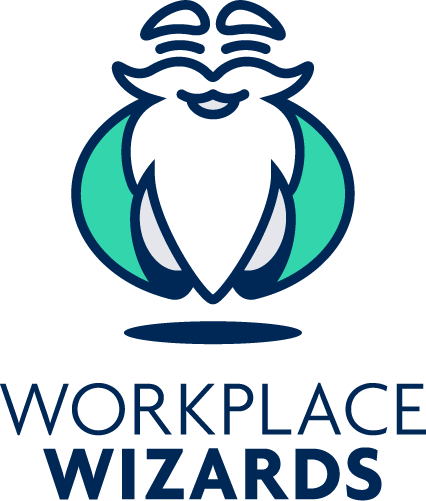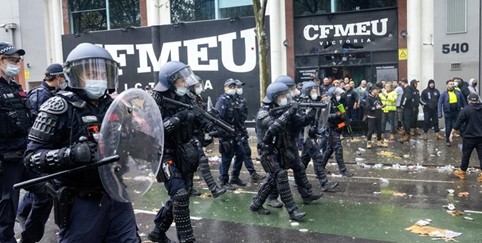As you are all no doubt experiencing, these are extremely challenging times in the Victorian construction industry. The sector is currently battling the outbreak of the Delta variant of COVID-19, a forced shutdown of the industry in metropolitan Melbourne (which could consume much of October, a traditionally busy month) and riots hitting the Melbourne CBD.
Leaders will need to seek, and get, the support of their workers (many of whom might well be protesting in the city as we write!) and meet your legal and commercial obligations to weather this storm, manage precious cashflow and keep heads above water. Workers need to, in turn, cooperate with their employer so they can ride this crisis out, stay gainfully employed and paid to work on metro construction sites.
There have been three ground-breaking recent legal changes to the state of play for Victorian construction companies.
Three Recent Legal Changes You Need To Know
1. Closure of site tea rooms
From 11:59pm last Friday (17 September 2021) the State Government decreed all construction sites must:
- have worker shift bubbles, including staggering the start, finish and break times, to reduce mixing of workers in different bubbles;
- prevent consumption of food and drink indoors except for water (and except for where there is a medical requirement to consume food or drink); and
- close tea rooms (such that staff are required to take meal and rest breaks outdoors on-site (or in their vehicles, alone)).
In response to the State Government’s closure of tea rooms to prevent the spread of COVID, the CFMEU’s childish and petulant response was to empower its delegates to:
- Shut down metro sites and adjoining roads to host protests on and around busy roads to mimic outdoor tea rooms; and
- Push for members on metro job sites to only perform six hours work on building sites (instead of the full eight hours employees are usually expected to perform). The rationale behind this was staff working 7am to 1pm without a break, so as to avoid using a lunch room at all. The extra two hours’ pay for not having to work was no doubt a nice little bonus for staff.
Builders were unimpressed with this labour cost blow out and the union members – understandably – were unsettled their representatives felt they could and should work six hours without the need for break. This is no doubt a dangerous precedent and flies against years of campaigning for regular breaks to reduce fatigue and fatigue-related job accidents.
We understand this stance is being taken out of the CFMEU refusing to comply with the State Government legal requirement for construction workers to take meal and rest breaks outdoors and in a socially-distanced manner.
2. ‘No jab no job’ after 5 October
By 11.59pm on September 23 September (tomorrow evening) by law all construction workers will be required to show evidence to their employer that they’ve had a first dose of the COVID-19 vaccine in order to continue working on construction sites.
This isn’t an employer’s choice to comply or not, it’s something thrust upon them by the State Government which they are legally required to comply with. This makes selling the change to workers much easier with the ability to ‘pass the buck’ to the Government requirement.
Limited medical exemptions and proof-of-booking exceptions will apply. We can discuss with you the proposed communications to staff and how to have one-on-one discussions with workers re their vaccination status and their ability to continue to legally work on Victorian construction sites. Contact our expert team of advisors for specific advice.
3. Fortnight shut down of metro construction
Most significantly, earlier this week (20 September) the Premier announced all construction activity in metropolitan Melbourne (and Ballarat, Geelong, Surf Coast Shire and Mitchell Shire) will shut down from 11:59pm that evening, owing to “continued concern about case numbers, transmission risk and reduced compliance”.No new work will be able to be completed on construction sites, other than work required to make the site safe and secure. All sites will be required to demonstrate compliance with various COVID-Safe laws and protocols prior to reopening – including the requirement for all workers to show evidence of having had one dose of the COVID-19 vaccine before they return to site on 5 October 2021.
The Blowback from Workers and Your Next Steps
As the riots on the Melbourne city street rages into its third day we see the passionate, feral and angry response from construction workers to these Government mandates. Potentially, the CFMEU – having let the protest genie out of the bottle with the outdoor lunch rooms last week – has now lit the spark on rolling delegate-led protests that has turned into a wildfire which may take days or weeks to extinguish.
Certainly the CFMEU, alongside the State Labor Government, has no plan or clue how to rein in the hundreds, if not thousands of disaffected workers and get them in a state (social distancing (not protesting), COVID-negative and vaccinated) where they can legally return to work post-5 October to meet the current stringent legal requirements.
Accordingly, in this volatile climate, construction employers have likely no option but to inform all onsite construction staff these five (5) key points:
- You have looked at all the other potential options but there are no other options available to keep you usefully employed because the entire industry has been closed down by an enforceable government order.
- As a result, for the foreseeable future they will be placed on ‘stand down’ during the lockdown.
- Workers may be able to access some entitlements (e.g. from Incolink or CoInvest) should they seek some form of payment during the next fortnight or so on the stand down period but this period will otherwise be unpaid and staff are unable to access paid leave during a stand down period (note, there is some ‘wiggle room’ here, contact our team for specific advice if you are considering ‘softening the blow’ with some access to paid leave).
- A COVID-19 ‘disaster payment’ may be available to help workers unable to earn income due to public health orders – see here for more info.
- Once the company hears the State Government’s lifting of its ban on construction work in metropolitan Melbourne (likely early to mid-October), you will be in touch with them further about transferring off their unpaid ‘stand down’ period and their ability to legally and safely transition back to paid work.
By way of legal basis, under section 524 the Fair Work Act 2009 (Cth), an employer can stand down an employee without pay where they can’t usefully be employed because of a stoppage of work for any cause for which the employer can’t reasonably be held responsible.
How To Discuss Your Workers’ Vaccination Status (in readiness for their return to work)
You will need to have discussions with staff in early October (if not before) to confirm they are vaccinated (see above) and that they can provide you evidence of same. These hard and difficult discussions cannot be avoided.
Your messaging should be to encourage all onsite employees to use this fortnight shutdown to ensure you can comply with the State Government-mandated laws and requirements so they can legally and safely return to work in early October 2021. Chiefly, this is using the next fortnight to book, and receive, one dose of the COVID-19 vaccine so your company can legally return these workers back to construction sites.
You should also communicate that a worker’s failure to be able to show evidence of this, upon his/her return to work in October, will result in the company:
- continuing their ‘stand down’ period without pay, or
- taking disciplinary action against them up to and including summary dismissal.
As you could imagine, these will be emotional and volatile conversations and ensure you get the specific, tailored advice and conversation coaching from our expert team before you need to have these difficult discussions and finish up your vaccination-resistant staff members.
Other Legal and Commercial Considerations & Further Help
Below are some of the other legal and commercial issues you should be mindful of in this period. Builders who currently have contracts on foot should review the contract terms (potentially get specialist advice) on:
- Whether to submit Extensions of Time requests (EOT) on your projects for at least the next two weeks (likely longer given the ‘bottleneck’ for trades and materials which is inevitable when the whole industry shifts back into gear in Oct); and
- how these changes may affect your contractual construction period (can you still deliver the project on time? Are you eligible to apply for extensions of time?) and Contract price (if you are paying trades on an hourly basis or material costs exceed previous estimate, delays will affect these and the profit margin on a job many be reduced).
For your new contracts, consider planned construction period for your build (is a further lockdown allowance prudent?) and Provisional Sum items (will you need to provide for further Provisional Sum adjustments for unexpected price rises given the current industry uncertainty).
See our good friends at Oldham Construction Lawyers for specific commercial and building contractual advice if needed.
Otherwise, Workplace Wizards specialises in people projects and problems for construction companies. We provide expert workplace relations, HR, IR, Workplace Health and Safety and workers’ compensation advice and support on demand and tailored to your business needs. contact us at Workplace Wizards support@workplacewizards.com.au or 03 9087 6949



0 Comments Leave a comment
Comments are closed.